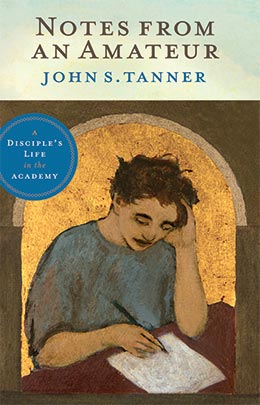The Founders and the Faculty
John S. Tanner, Notes from an Ameteur: A Disciple’s Life in the Academy (Provo, UT: Religious Studies Center; Salt Lake City: Deseret Book, 2011), 114–6.
July 4, 2007: I have been thinking today about citizenship and service. Both America and BYU depend on a robust tradition of service by their citizens in behalf of the common good. America relies on citizen leadership at all levels, from the PTA to the presidency. School boards, city councils, state legislatures, and the countless voluntary associations that de Tocqueville recognized as a hallmark of our civic life—all are populated predominately by part-time volunteers rather than full-time professionals. We are a nation of amateurs. Indeed, “professional” becomes a term of opprobrium when linked to “politician.”
I suppose the Founders are partly to blame for this. They left their farms and shops to lead armies, write constitutions, and govern an emergent republic. And then, just as remarkably, they returned to private life. The Founders comprise a whole generation of Mr. Smiths who went to Washington, or at least Philadelphia, and then went home—to Mount Vernon, Braintree, Monticello, Montpelier—to resume their lives as citizens.
For the founding generation, no one embodied this ideal of citizen leadership more compellingly than George Washington. He was revered as an American Cincinnatus, the ancient Roman general who left his farm to defend his country and then refused the dictatorship and returned to his farm. If Washington won the war by the art of strategic retreats, he secured lasting liberty by the art of strategic resignations, as general of the Continental Army and later as president of the United States. In this he truly served as the “Indispensable Man” for a nascent nation. His example taught America what it meant to be a public servant in a republic, how citizen leaders should wield power and yield power, and how office holders had a duty to pursue the public good rather than private gain.
BYU depends on a similar tradition of citizen leadership. We regularly ask faculty to take turns at university governance and then return to the faculty. In my current assignment, I am privileged to extend invitations to faculty to serve as chairs, directors, deans, and associate vice presidents. For most faculty, such service comes at a price, usually the price of not doing as much of what they love best (teaching and research) to do what they love least or not at all (administration). The same is true of those who take on heavy committee assignments. Yet few turn down the invitation to serve. Why?
In part, I suppose it is because we are accustomed to accepting callings in the Church, which also depends on lay leadership, but also because most faculty genuinely love BYU. Few BYU faculty pursue administration as a career track. Rather, they serve out of commitment to being good university citizens; their service constitutes an interlude in their faculty careers here. I encourage new chairs and deans to take satisfaction in building a department and college rather than a vita for a time, yet I know full well they will feel moments of regret for students untaught, books and articles unwritten. So I am moved when faculty accept assignments to serve. I am no less touched when they gracefully step down from university service to retire or resume their place in the faculty. Such service in behalf of the common good partakes in the spirit of citizenship bequeathed to us by the Founders.
* * *
Today my wife and I went on our first balloon ride. We were the hare in the Hare and Hound balloon competition at the Freedom Festival. As we glided above BYU, I was struck by the beauty of this place. Looking down with fresh eyes on a campus I thought I knew well, I discovered new features in these 600-plus acres of America I love, such as a beautiful garden on the south end of campus where the house I lived in as a freshman once stood. As I looked over the campus and across this peaceful valley, I felt a surge of gratitude for all those—past and present, great and small—who have responded to the call of citizenship to serve both country and college.
We sing of the Founders as those “who more than self their country loved.” [1] We could equally celebrate the generations who have built BYU as those “who more than self their college loved.” May we ever keep alive here a spirit of sacrifice and selfless service. For, like America, BYU needs citizens animated by a love for it larger than self.
Notes
[1] Katherine Lee Bates, “America the Beautiful,” Hymns of The Church of Jesus Christ of Latter-day Saints (Salt Lake City: The Church of Jesus Christ of Latter-day Saints, 1985), no. 338.
